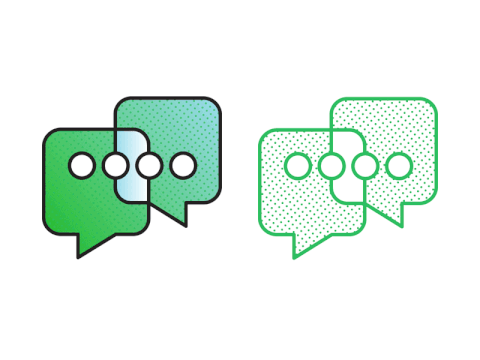Dialogue is a powerful tool for making your writing more engaging and persuasive. But it can be tricky to master, especially if you're not used to crafting conversations.

When you talk to someone in person, you can see what they're thinking and feeling. This helps you understand how to respond and adjust your message accordingly. But when you're writing, you don't have that advantage—you have to do the work of getting inside your reader's mind yourself. That's where dialogue comes in.
Mastering the art of dialogue is an essential skill for any writer who wants to create compelling characters.
A character's dialogue can be used to reveal his personality, his history, and other aspects of himself that are not explicitly stated. Good dialogue can also help a reader understand what's happening in a scene without having to be told explicitly. It can make a character more relatable by showing how they speak and act in their everyday lives.
Dialogue can also serve as a means of conveying information—whether it's through exposition or otherwise—but it should never feel like you're telling your reader something they already know or don't need to know.
When writing dialogue, make sure your characters are consistent with who they are as people. If they're an introvert, don't have them suddenly start shooting off at the mouth at some point in the story; if they're normally reserved but say something unexpected and inappropriate, then explain why that happened so readers don't think something is wrong with them as people.

So how do we do this?
The dialogue in your story should not be an afterthought. You need to know how your characters talk, what they sound like, how they speak and what their tone is like. How do they express anger? Are they sarcastic? Do they make jokes or are they more serious? These are all things that you should consider when writing your characters' dialogue.
Once you have determined a character's personality and how they speak, it is time to write down some lines for them to say!
When writing dialogue, it's important to keep in mind that your characters are speaking in ways that would be natural for them. If you have a character who grew up as a farmhand, then it wouldn't make sense for them to speak like an educated city-dweller. Don't try too hard to make your characters sound like people from different backgrounds—just write them as they would naturally speak.
This can be one of the most difficult parts of writing dialogue because it requires a lot of creativity on your part. Try not to write too much at once or else you might end up with too many words and not enough meaning behind them. Instead, try writing one line at a time until you have enough material for one conversation between two characters or more! Remember: It doesn't matter if what they say doesn't make sense yet because we will fix that later on during editing when we look at whether or not our sentences are logical enough so that people won't have trouble understanding them when reading through them again later down the line!

In Conclusion
The key to effective dialogue is knowing where it belongs in your story, who should be saying it, and how you can use it most effectively.
Dialogue is a great way to show your reader what's going on in your characters' heads without having to resort to exposition or narration, which can be boring for both writer and reader. Dialogue helps readers get into your character's head, feel their emotions and understand their motivations more deeply. It also gives them a chance to interact with other characters and make decisions about how they want those relationships to evolve, which makes them more invested in your story.
Dialogue is how we communicate with others through words, so it makes sense that it would be the best way for writers to communicate with their readers too. If you want your characters' voices to be distinct and believable, dialogue can help make that happen. You can use dialogue as a way to reveal character traits like personality traits, values and beliefs; or use it as a way for characters to show their thoughts or feelings; or even use it just for fun!



This is a very interesting point, it never came to my mind. Dialogue is complicated and requires being able to "simulate" another person's thoughts. I should try writing one sometimes.